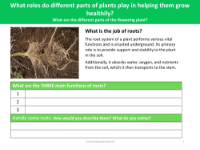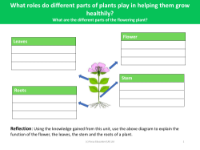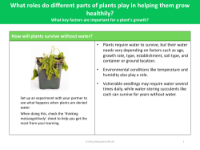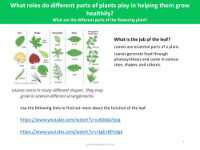What are the key factors that are important to a plant's growth? - teachers notes
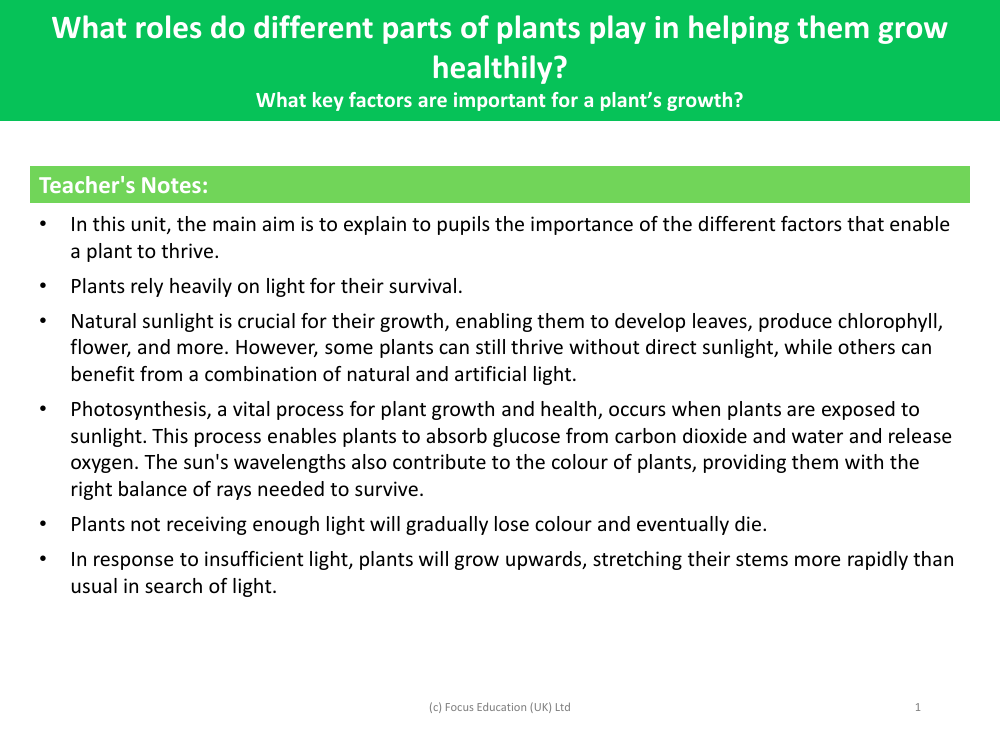
Science Resource Description
When educating pupils about the growth of plants, it is essential to highlight the significance of various factors that contribute to a plant's ability to flourish. One of the most critical elements for plant survival is light. Plants depend on light, particularly natural sunlight, to perform essential functions such as leaf development, chlorophyll production, and flowering. While certain plants can adapt to less direct sunlight and may even grow with the aid of artificial light, the absence of adequate light can lead to a loss of colour and vitality, ultimately resulting in the plant's demise.
Photosynthesis is a crucial process that underpins plant health and growth, and it requires sunlight to occur. This natural process allows plants to convert carbon dioxide and water into glucose, which nourishes them, and release oxygen as a by-product. The specific wavelengths of sunlight not only facilitate photosynthesis but also influence the plant's pigmentation, ensuring they receive the spectrum of light necessary for their well-being. A lack of light prompts plants to exhibit etiolation, where they stretch their stems abnormally in an effort to reach a light source. Understanding the roles of different plant parts and the key factors affecting plant growth, such as light exposure, is fundamental to ensuring that plants grow healthily and vigorously.



